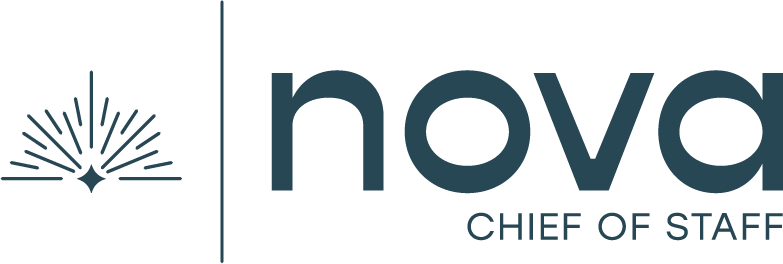Chief of Staff: a Generalist Role
A good Chief of Staff (CoS) is often characterized by their drive, versatility, and acumen for leadership. But recently, the word “generalist” has been thrown around to describe the role with the effect of valuing the very important and varied functions of a CoS.
But let’s take a look at some definitions of what a “generalist” is:
"A generalist is a person competent in several different fields or activities."
"A generalist is a person who has expertise, knowledge, skills, or abilities across a broad range of subjects or areas rather than specializing in just one specific field."
"Generalists exhibit versatility and adaptability, allowing them to handle various tasks and responsibilities."
So, what do we think? Does the term “generalist” really connotate a lack of experience or expertise? Definitely not!
In reality, the word really signals the opposite. Being a generalist is increasingly valuable to today’s top business leaders. Chiefs of Staff are increasingly valuable assets to executive leadership because they have a generalist sense about them when it comes to management and problem solving.
Unlike in highly-specialized roles, Chiefs of Staff are expected to be competent in a long list of different areas in the rhythm of business: finance, communications, events, the list goes on. We also use our generalist capabilities to identify spaces where we can create additional value for our leadership, to bring in innovative modes of streamlining operations. In fewer words: Chiefs of Staff are great at many things and they’re supposed to be. An experienced CoS has spent years honing their confidence and competence in a wide variety of skills and positions. It is this nimbleness that makes it such a lucrative and rewarding career path for the go-getters out there.
Having gone to business school in my twenties, I felt an incredible pressure to specialize my field of expertise. So many business thinkers will tell you to find a niche and stick to it, and that’s how you bring home the big bucks. But as I soon learned, a job specialized in performing the same tasks day-in and day-out wasn’t how I imagined my ideal career.
Nearly a decade after my first professional job, I finally found career alignment as a Chief of Staff. The mixed responsibilities of the role allowed me to really explore my strengths, providing me with the opportunities to:
Be a generalist leader.
Learn about the company from the top down.
Work on a diversity of tasks.
Gain proficiency and mastery across many different areas.
Practice direct and influential leadership.
Nurture workplace relationships.
Build excellent tools, systems, and processes.
As a highly driven individual who can get bored with repetitive or unchallenging assignments, I think one of the greatest gifts that Chiefs of Staff have is the ability to "be competent in several different fields or activities." It’s like being the Renaissance Man or Woman of the C-Suite, with something new to learn or tackle every single week.
Being a generalist leader is a huge strength. I am a better Chief of Staff because my prior experience is varied, diverse, and vast. The fact of the matter is that if you don’t think of yourself as a generalist, you’re probably not a CoS!

